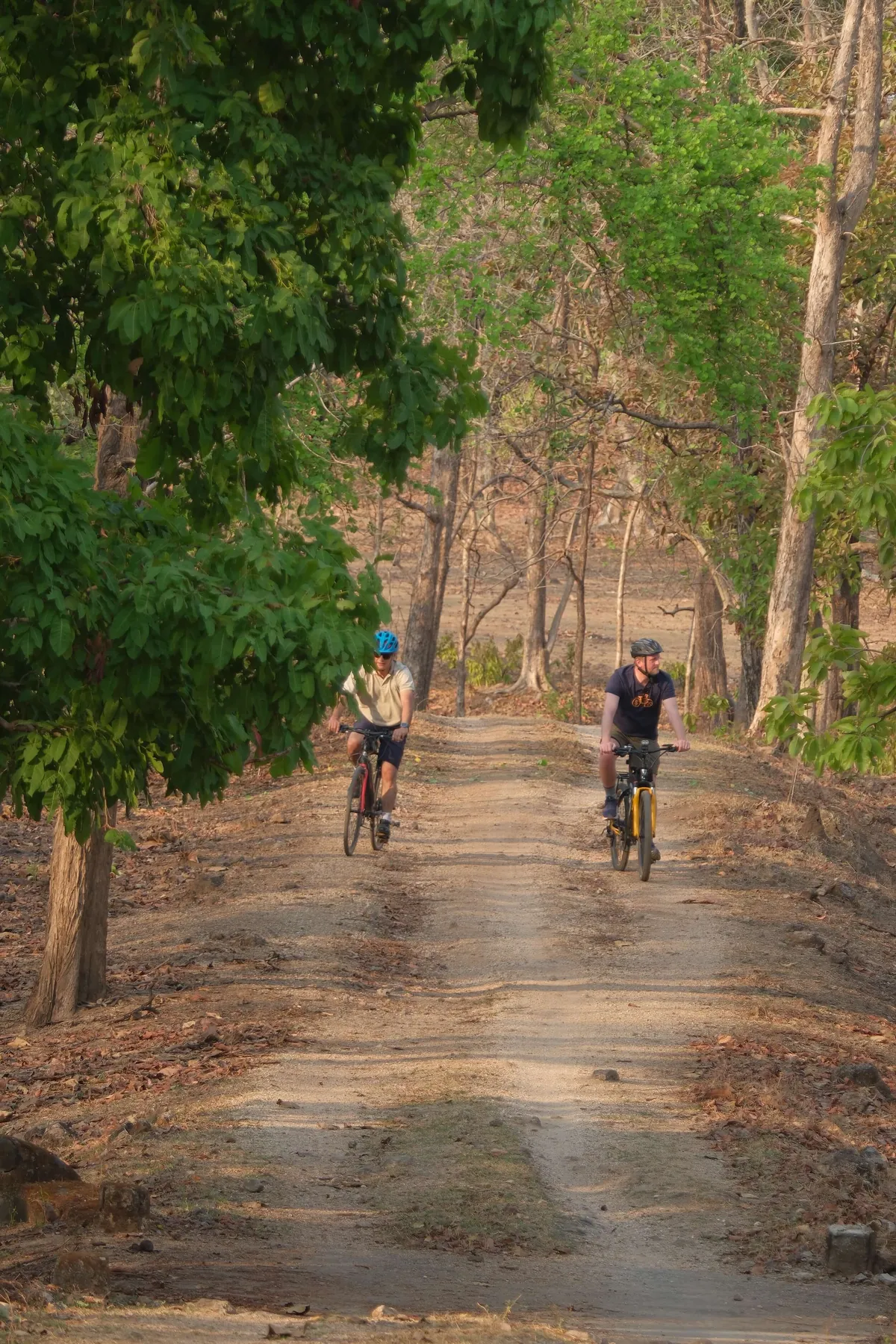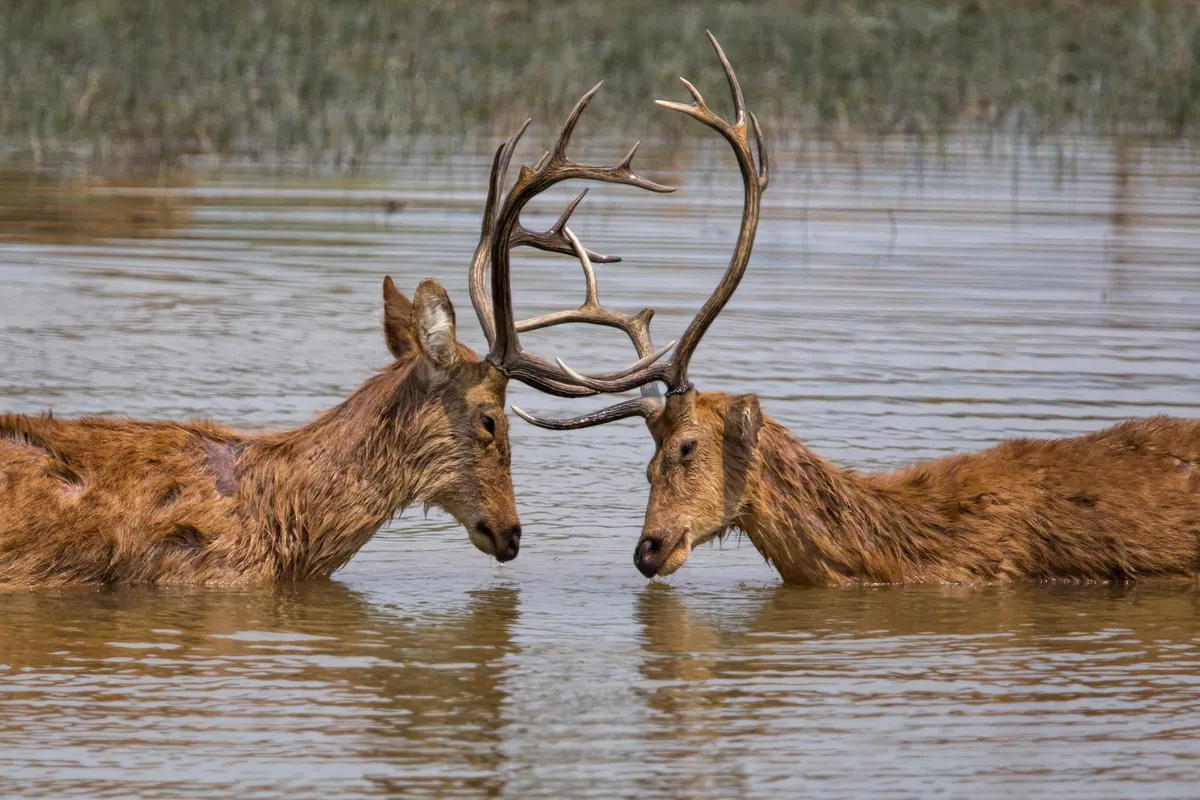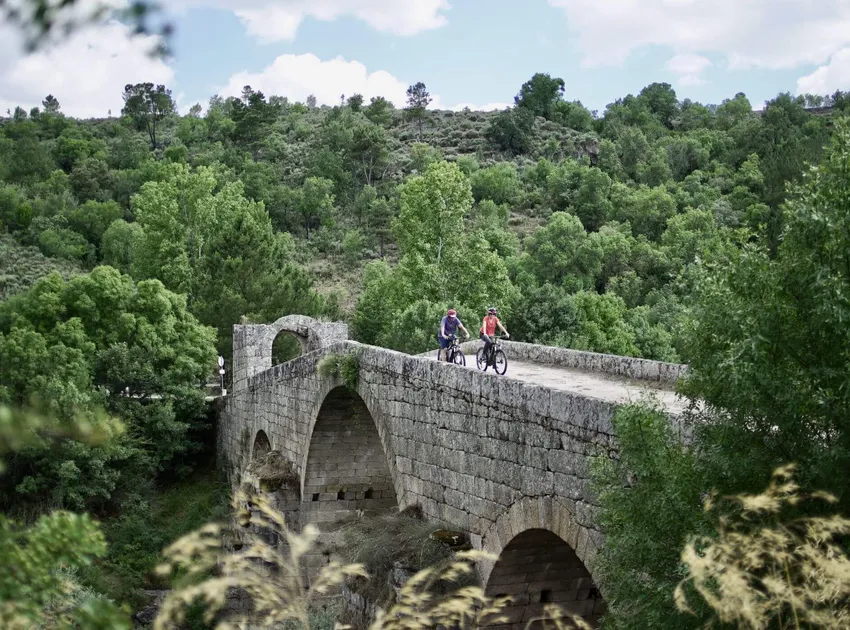TOFTigers: Tiger Conservation in India and Beyond
To celebrate 10 years of The Slow Cyclist, we’re fundraising for 10 fantastic charities. As we venture into India, TOFTigers was an obvious choice to be one of the ten. As well as protecting India’s tiger population, the charity supports local communities and attracts responsible tourism to India’s national parks.
TOFTigers founder, conservationist and sustainable travel advocate Julian Matthews tells us more about the charity’s work and purpose below.
Purpose
We advocate for responsible, well-managed wildlife tourism, demonstrating that it can be a force for good and can benefit both wildlife and bordering communities.
I started TOFTigers in 2004 when India declared that tigers were at threat of extinction, with only 1,400 remaining. As a safari operator I recognised that work needed to be done to protect the rapidly dwindling tiger population. Although tigers had protection with conservationists and NGOs trying to save them, they didn't have one crucial ingredient: an economic imperative.
Tigernomics
‘Tigernomics’ is the concept at the heart of TOFT: the idea that tigers are valuable for the economy and that their forest homes are valuable assets, benefitting the ecosystem with clean water, clean air, pollination and carbon storage.
Park fees from visitors support conservation efforts and, with responsible tourism, bordering communities benefit from jobs and opportunities. Our aim is to make sure that lodges work closely with local communities, keeping money and decision making in local hands.
We work with over 300 lodges, travel companies and other tourism providers to embed sustainability and local integration into every part of the visitor’s journey through India. Together, we encourage visitors to make responsible and sustainable choices.

National Parks
India is home to some well-known areas for wildlife (think Ranthambore and Bandhavgarh National Parks). However we need to spread our focus and conservation efforts across all 53 tiger reserves and over 700 protected areas in India. This benefits more communities and reserves, including unknown and uncared for territorial forests that make up the vast swathe of India's remaining forested landscape.
Slow Cyclists who join us in India will visit Pench and Kanha National Parks, both in Madhya Pradesh. These parks were once hunting grounds for the Maharaja and then the British Raj, before being depleted by poaching and timber cultivation. Over the last 20 years, the parks have undergone a remarkable restoration process, and are once again are home to numerous tigers, leopards, sloth bears, wild dogs and extraordinary birdlife.
Change
Since TOFTigers was founded, the number of Royal Bengal tigers in India has gone from around 1,400 to over 3,600, and the population in Nepal has doubled. Huge swathes of glorious wildlands have been restored to their natural state.
The villagers who live in and around the nature reserves have felt a real impact, too. Once marginalised communities now have access to new jobs, economic opportunities and hope that they never had before.

What’s Next for TOFTigers?
We continue to run a host of community focused projects, training courses, awards programmes and park-focused initiatives. All of this ensures the economic sustainability of protected areas. It also means that visitors to India have a fantastic experience, which in turn leads to restoration and recovery of India's forests and wildlands.
If you've been inspired to cycle the wild landscapes of India, find out more about our Tigers and Tribes of Central India journey or contact us for more information.
Click here to learn more about our 10 year anniversary celebrations and fundraising.
We are committed to honest and transparent fundraising. Find out more here.





